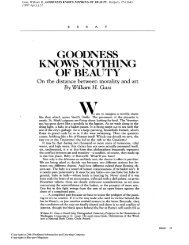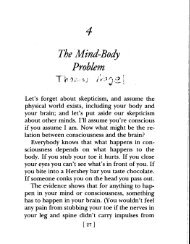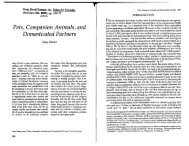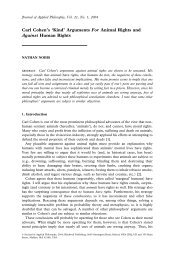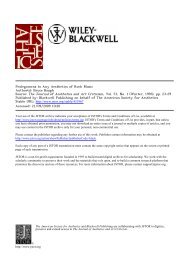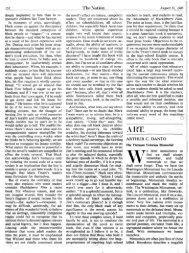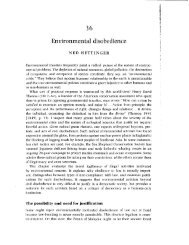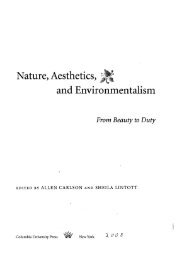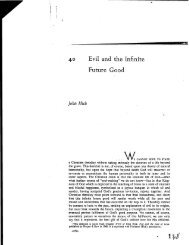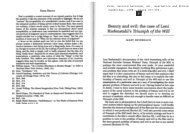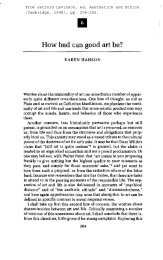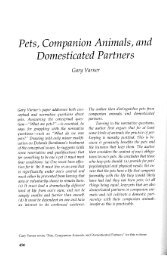Anthropocentrism vs. Nonanthropocentrism: Why Should We Care?
Anthropocentrism vs. Nonanthropocentrism: Why Should We Care?
Anthropocentrism vs. Nonanthropocentrism: Why Should We Care?
You also want an ePaper? Increase the reach of your titles
YUMPU automatically turns print PDFs into web optimized ePapers that Google loves.
ANTHROPOCENTRISM VS. NONANTHROPOCENTRISM<br />
177<br />
as being one way while believing that it is another. But one thing is certain: the<br />
world canʼt be both ways. While philosophers of the emotions disagree on the<br />
precise nature of the cognitive aspect of the emotions, they agree on its direction<br />
of fit. Knowledge, belief, perception, discernment: all of these cognitive states<br />
aim to fit the world – that is, they aim to accurately describe the way the world<br />
is. The problem for the person who both thinks of A as mattering and believes<br />
that A doesnʼt matter is that she has two cognitive states, both of which aim to<br />
be correct descriptions of the world, and they canʼt both be right. What kind<br />
of a problem this is – whether it is a form of irrationality, logical impossibility,<br />
cognitive dissonance – will depend on oneʼs overall theory of rationality. My<br />
only claim here is that most of us take these states to be a problem, and that if<br />
we do, we will have reason to worry about anthropocentrism. 29<br />
The upshot of this is that the central claim of anthropocentrism is incompatible<br />
with certain kinds of attitudes we might want to take toward the natural<br />
world – love, respect and awe; perhaps others as well. Thus according to<br />
anthropocentrism, the way that these attitudes involve seeing the value of the<br />
natural world must be fundamentally incorrect. If to love something is to think<br />
of it as having a kind of value that doesnʼt depend on us and our interests, then<br />
according to anthropocentrism, to love the natural world is to make a mistake<br />
about its value.<br />
So even if anthropocentrism doesnʼt change what we think it makes sense to<br />
do in the world, it might well change how we think it makes sense to feel about<br />
the world. In particular, if I am right that the central claim of anthropocentrism<br />
is incompatible with the attitudes of love, respect and awe, then insofar as anthropocentrism<br />
is true, we are making a kind of mistake when we love the land,<br />
respect nature, are in awe of the vastness of the universe, or take other attitudes<br />
that are incompatible with thinking that their objectʼs only value is in serving<br />
our interests. On the other hand, if these attitudes are appropriate, then we have<br />
good reason to worry about the adequacy of anthropocentrism.<br />
V. HOW DOES IT MAKE SENSE TO FEEL TOWARD NONHUMAN<br />
NATURE?<br />
So is it appropriate to take these kinds of attitude toward the natural world? It<br />
seems that many of us, even after much thought and careful reflection, think<br />
so. In the case of love, for example, consider the ways people feel toward individual<br />
animals, particularly those who live with humans as companions. If<br />
loving something involves seeing it as having value that doesnʼt depend on its<br />
serving our interests, then anthropocentrism says that Iʼm making a mistake<br />
when I love my dog. To say that itʼs a mistake to love a dog would, at least for<br />
many people, constitute a reductio ad absurdum of anthropocentrism.<br />
Environmental Values 16.1



